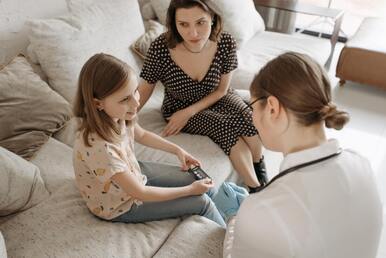|
This is a question from many parents and a hard decision to make. It is important to make an informed decision and to know your options. The information in this post is intended as a starting point for parents to help them on their journey as they consult with the other healthcare professionals in their child’s circle of care. Below are some commonly asked questions: What if my child has a diagnosis?
A child will typically receive a diagnosis either from their Pediatrician or from a Psychologist after a Psychological Assessment is completed; with that diagnosis there may be a recommendation for medication. It is important in any situation for parents to gather information to understand the risks and benefits of the medication, I often suggest https://www.webmd.com/drugs/2/index. What if the doctor recommends medication? If the Family Doctor or Pediatrician makes the recommendation: 1. Write down what they have told you, 2. Ask for the spelling of the medication, 3. Ask for any information you can read to educate yourself about the medication, and 4. Consider booking a follow-up appointment with your doctor to give yourself time to absorb and think through the information. Most Family Doctors and Pediatricians will recommend for children to try alternatives like therapy or counselling before trying medication. You can ask your doctor about any alternative options they would recommend. What if I intuitively suspect something is not right? Some parents intuitively know something is just not right and start searching for answers on how to help their child. Whether they received phone calls from the teacher that their child will not sit still in class and is constantly interrupting, or their child is completely withdrawn and lost interest in the activities they used to enjoy. I often tell parents to be wary of google searches unless it is to find organizations or agencies who specialize in the area of concern or in children. First consult with Family Doctor or Pediatrician as some concerns are just developmentally normal. Parents can also set up a time to speak with their child’s teacher to see their observations in the classroom, as sometimes children show up differently in different environments. What are the alternatives? Some alternatives include Naturopathy, herbal supplements, dietary changes, increase in exercise time each day particularly outdoors, reducing screen time, engaging in creative outlets, and child focused meditations and yoga. Another alternative is counselling or therapy support, it is important to find someone who has experience working with kids and who you feel is a good fit for your child. I have supported many parents in making informed decisions for their children, and have worked with numerous kids over the years to find the coping tools right for them to manage the symptoms and feel better.
0 Comments
Leave a Reply. |
AuthorI am a Registered Psychotherapist and Art Therapist. And I have been writing this blog since May 2021 about various topics including parenting, supporting adult and child mental health, and holistic approaches. The intention of this blog is to provide resources and information to others, however it is not intended to take the place of therapy. If you have any questions about anything written please reach out to me. Archives
March 2024
Categories |
Telephone |
|


 RSS Feed
RSS Feed